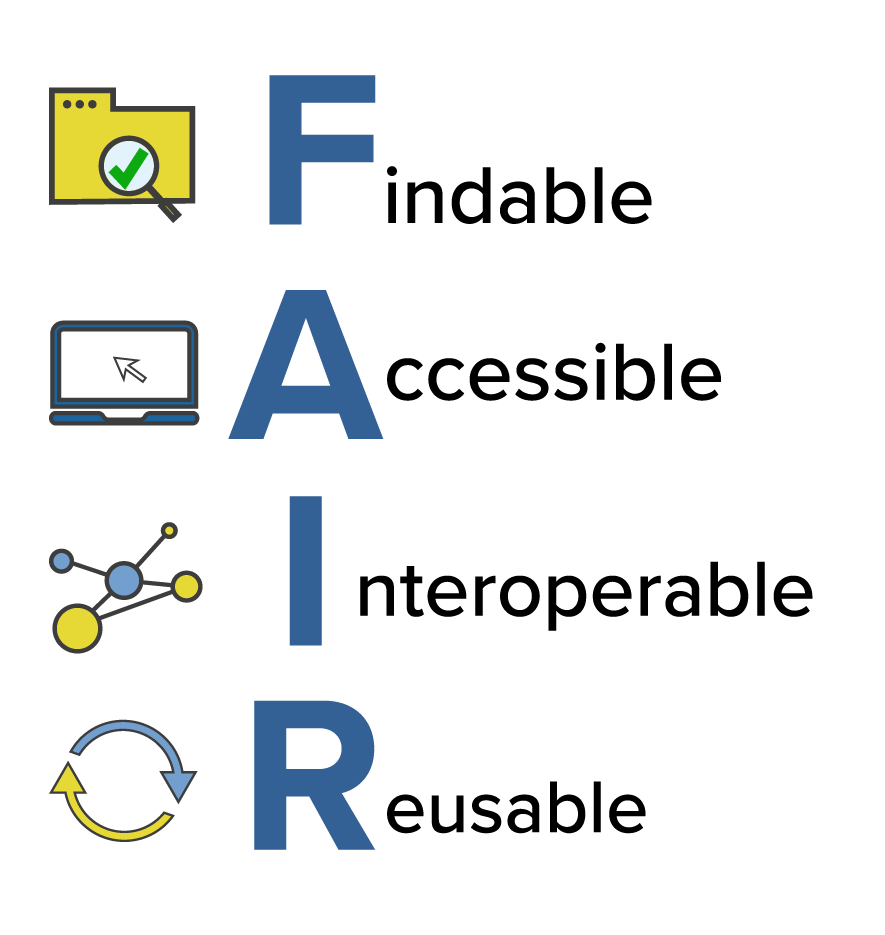FAIR Data
Librarian’s Role with FAIR Data
The FAIR Principles (Findable, Accessible, Interoperable, Reusable) are obviously related, but technically somewhat independent from one another. They may be implemented in any combination, incrementally. As such, the barrier-to-entry for FAIR data producers, publishers and stewards is maintained as low as possible, with providers being encouraged to gradually increase the number of FAIR Principles they comply with.
FAIR-ness can be achieved with a wide range of technologies and implementations.
The Association of European Research Libraries describes the librarian’s role. The librarian should:
- Promote the FAIR principles at your institution
- Incorporate the FAIR principles in your Data Management Plans and in your preservation practices and policies
- Seek opportunities to curate, enrich, capture and preserve research data that will aid in making data findable, accessible, interoperable and reusable. Good starting points are collections of individual researchers, or a data collection of a research group
- Train subject and data librarians on disciplinary metadata, vocabularies and tools to make data FAIR
- Encourage and assist researchers to deposit data with archives that embody the FAIR principles
- Evaluate the data collections and data management practices at your institution against the FAIR principles
How does the National Library of Medicine support the FAIR principles?
- We provide consistent metadata and submission standards
- We provide specifications for authentication and security services in our data submission systems
- We enable and fund support for automated curation practices to ensure data integrity
- We enable discovery through identification and continuous iterations of user-friendly interfaces
- We encourage the use and publication of open data and open science
We can’t address all the FAIR principles in this tutorial, but we do want to introduce you to one tool that can support several at once: the common data element (CDE).
Association of European Research Libraries. (2017, December 8). Implementing FAIR Data Principles: The Role of Libraries. LIBER Europe. https://libereurope.eu/article/implementing-fair-data-principles-role-libraries/.
